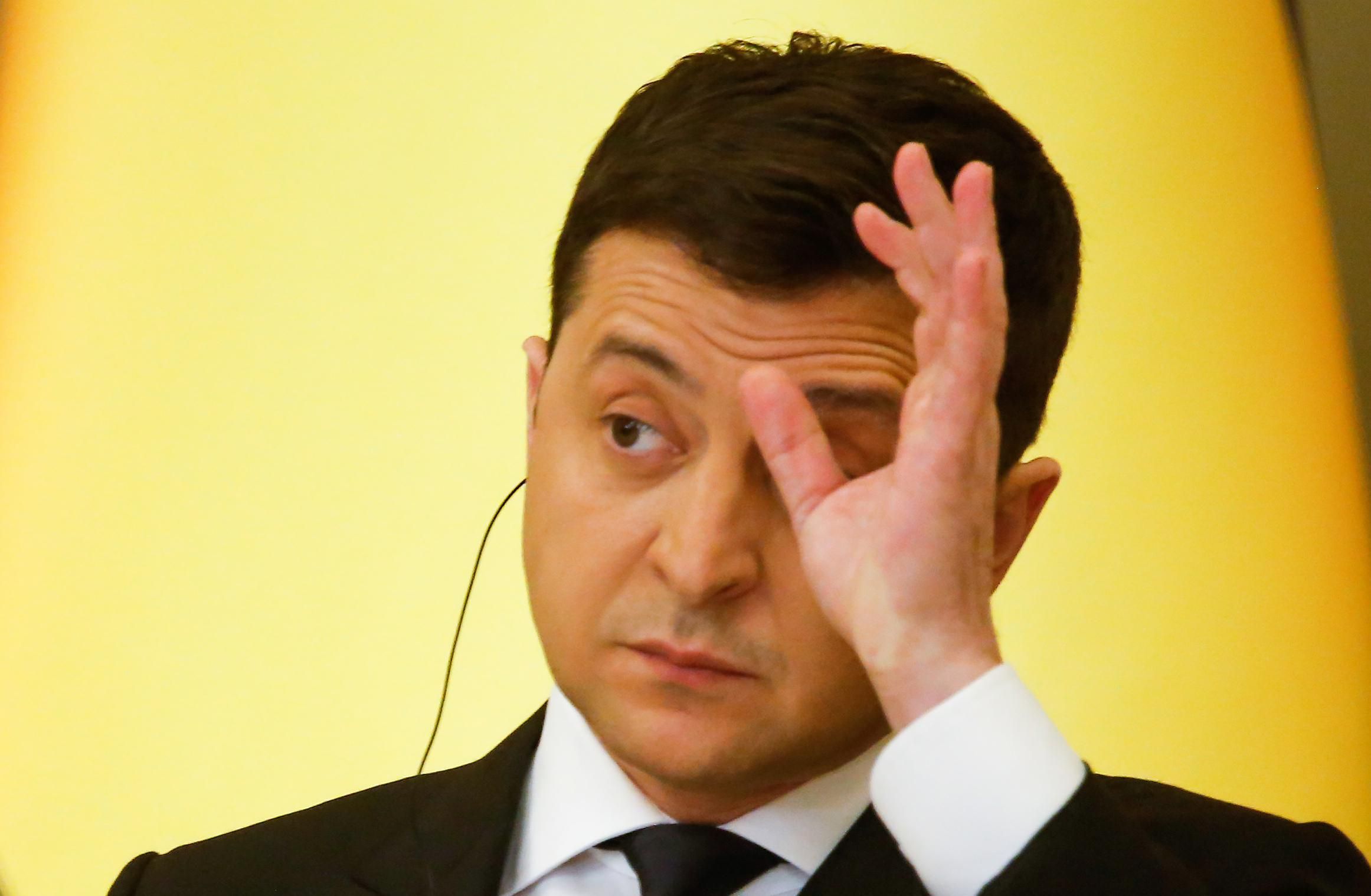Ukraine's President Volodymyr Zelensky is now facing the most crucial hours of his life after Russia launched a once-unthinkable, large-scale invasion of his country on Thursday.
So, what will Ukraine’s leader do next?
Even the most competent and seasoned politicians blunder during crises, especially ones of this magnitude. But the 44-year-old Ukrainian leader’s lack of traditional political experience and his unconventional background add a layer of uncertainty to how he’ll deal with the Russian onslaught.
Zelensky is no ordinary politician. The former comedian was elected in 2019 after playing the president in a popular TV series. Zelensky’s global claim to fame, until now, was being on the other end of that “perfect” phone call with Donald Trump.
While being a political novice comes with risks, Michael Bociurkiw, a senior fellow at the Atlantic Council, believes that could actually work to Zelensky’s advantage against Russia’s veteran president.
Zelensky's unpredictability, Bociurkiw says, “doesn’t mesh well with Putin’s well-thought-out, chess-like mentality.” As a former entertainer, the Ukrainian leader “knows how to shape the narrative and project confidence more than he may actually possess.”
Indeed, just hours before Russia’s invasion began, Zelensky gave a stirring appeal for peace on Thursday, and warned that the “future of European security is being decided now, here in Ukraine.”
Even prior to the invasion, Zelensky faced a very tough choice. If he responded militarily to Russia’s recognition of the independence of the separatist regions in the Donbas, he risked pushing Putin into a wider invasion targeting Kyiv. But doing nothing was also a non-starter — Ukrainians would never forgive him if he just let Russia gobble up a chunk of their country without putting up a fight.
Now, the only thing Ukraine’s president can do “is to stay firm and resist” because Ukrainians are overwhelmingly against any concession to the Russians, according to Olexiy Haran, research director at the Kyiv-based Democratic Initiatives Foundation.
“When Zelensky was elected, he was naïve enough to believe he could sit down with Putin, talk to him to stop a war. He tried, he made compromises," Haran explains. But the Russian leader gave up nothing. “That hardened the position of Zelensky, who now has no illusions in his mind about what Putin wants: to crush Ukraine.”
The Ukrainian leader also knows he can’t rely entirely on the West to stop Russia because there’s a limit to what the Americans and Europeans are willing to do for him: sanctions on Russia and arms supplies for Ukraine. That’s why, although Putin likes to portray him as a Western stooge, Zelensky has often publicly disagreed with Western leaders.
“Zelensky feels that the West has not really stepped forward to support Ukraine,” says Kurt Volker, a former US ambassador to NATO and special rep for Ukraine. "He finds that we constantly push him on reforms and governance (...) but when it comes to Ukraine’s actual security needs — whether on energy or on Russian aggression — we don’t actually step up. He believes that NATO is sincere in its commitment to values, but he is calling out the gap between our beliefs and our actions.”
Want a quick primer on the Ukraine crisis? Check out the Q+A that GZERO’s Alex Kliment did with the good folks at Morning Brew. Tony Montana makes an unexpected but edifying appearance.
More For You
In this Quick Take, Ian Bremmer weighs in on the politicization of the Olympics after comments by Team USA freestyle skier Hunter Hess sparked backlash about patriotism and national representation.
Most Popular
100 million: The number of people expected to watch the Super Bowl halftime performance with Bad Bunny, the Puerto Rican superstar and newly minted Album of the Year winner at the Grammys.
Brazilian skiers, American ICE agents, Israeli bobsledders – this is just a smattering of the fascinating characters that will be present at this year’s Winter Olympics. Yet the focus will be a different country, one that isn’t formally competing: Russia.
What We’re Watching: Big week for elections, US and China make trade deals, Suicide bombing in Pakistan
Japanese Prime Minister Sanae Takaichi, president of the Liberal Democratic Party (LDP), appeals for a candidate during a street speech of the House of Representatives Election Campaign in Shintomi Town, Miyazaki Prefecture on February 6, 2026. The Lower House election will feature voting and counting on February 8th.
Japanese voters head to the polls on Sunday in a snap election for the national legislature’s lower house, called just three months into Prime Minister Sanae Takaichi’s tenure.
